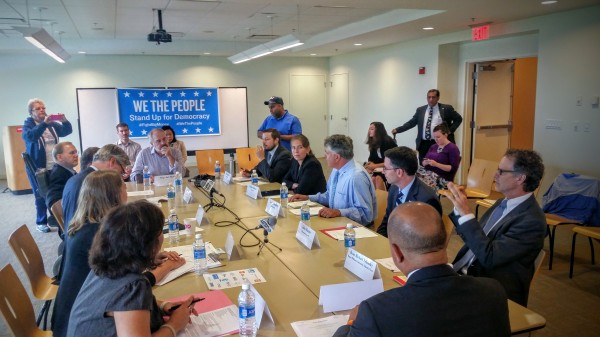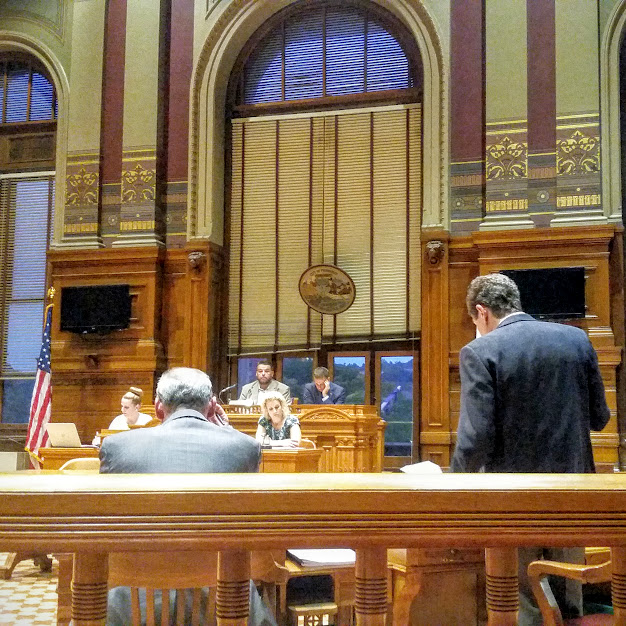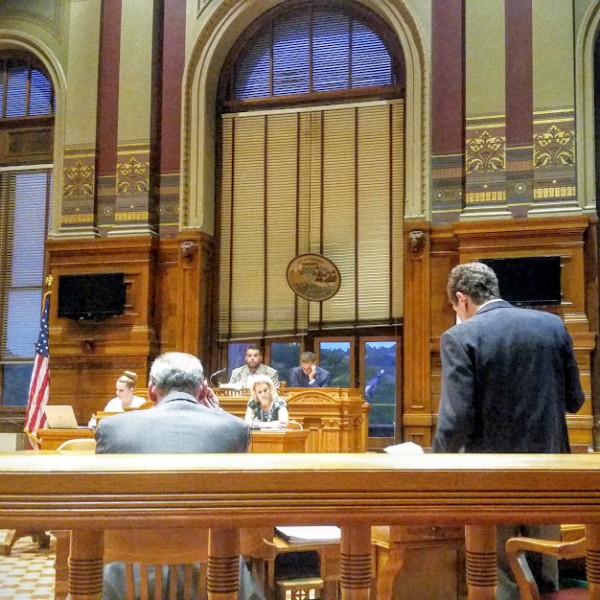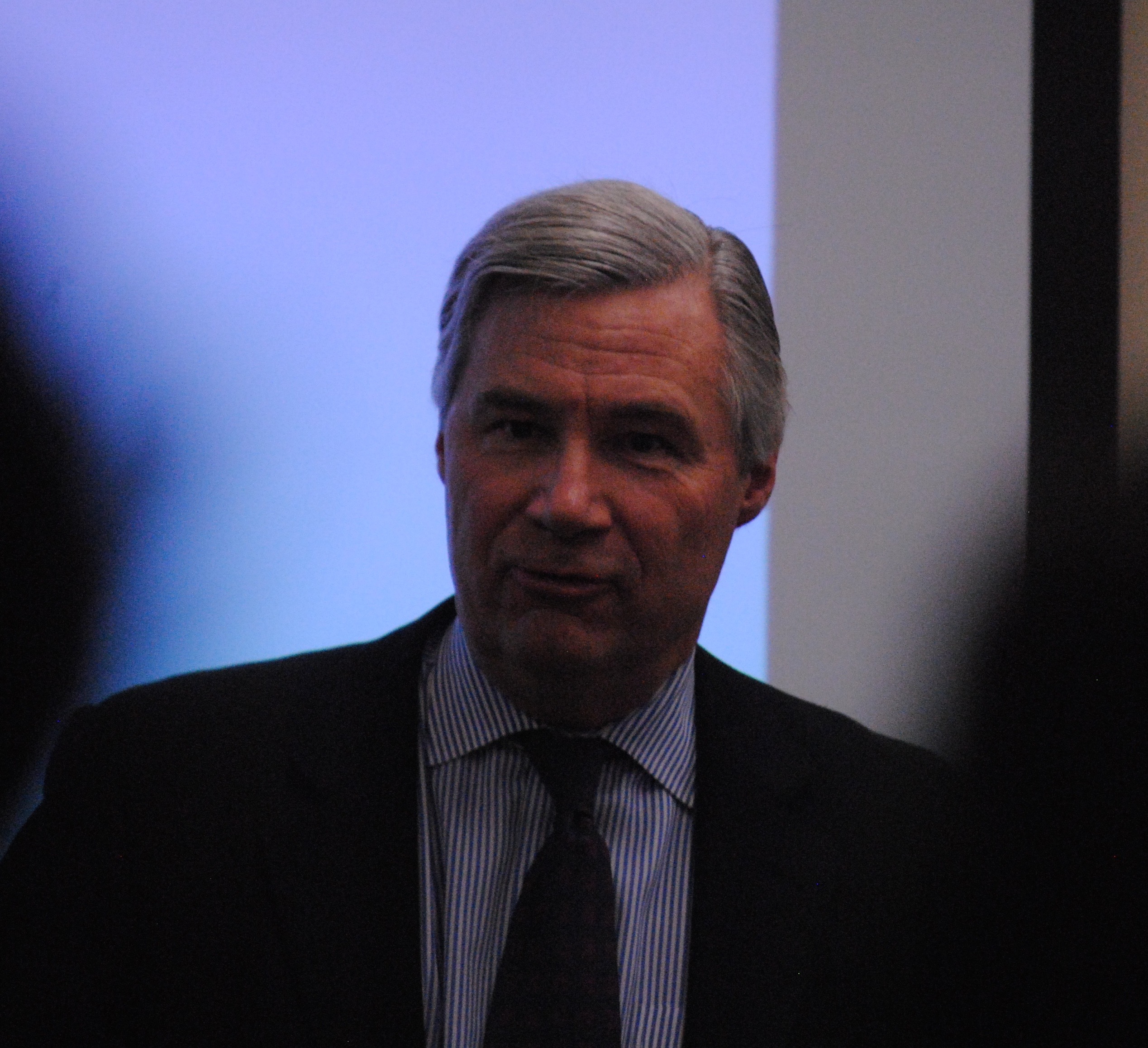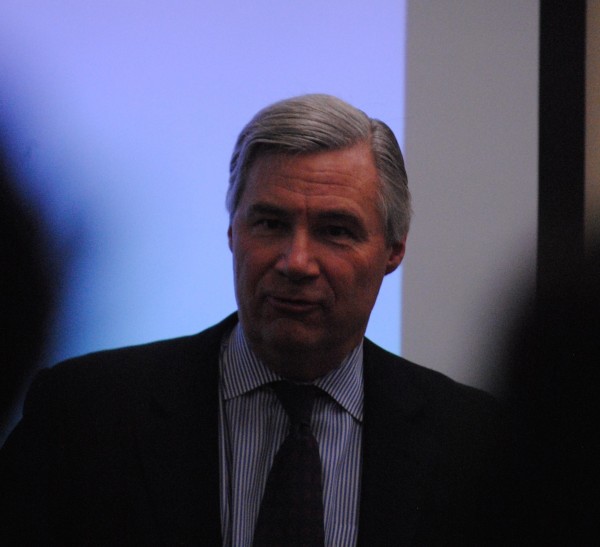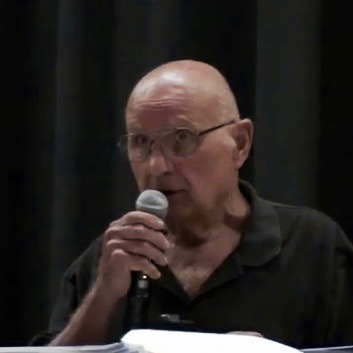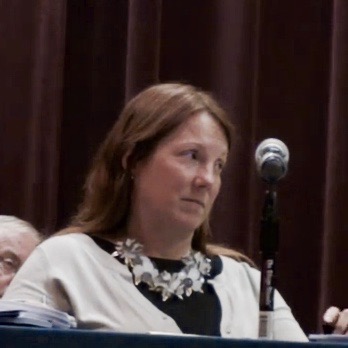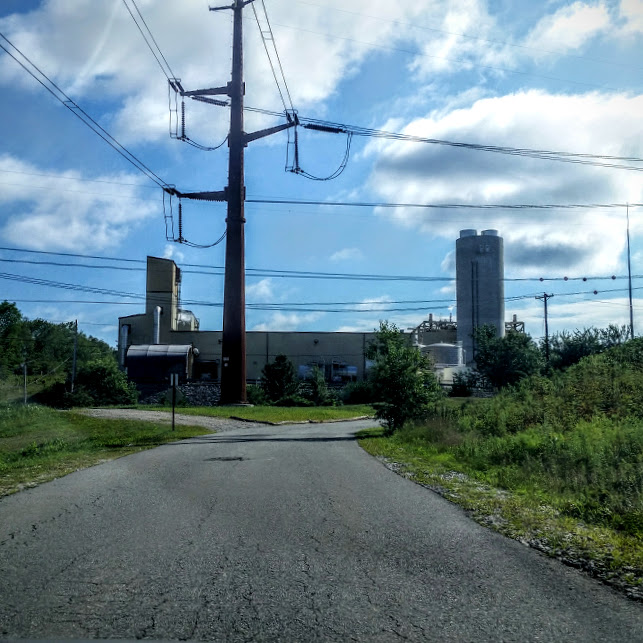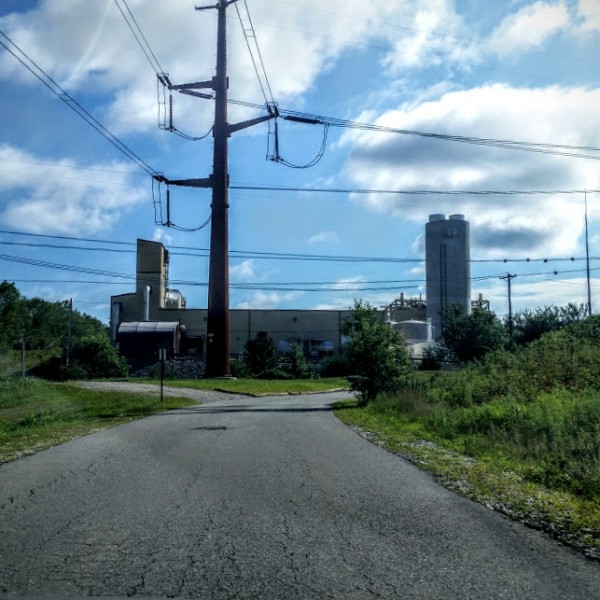
The No LNG in PVD coalition is demanding that National Grid immediately halt construction and excavation work at 642 Allens Ave, the site of the proposed liquefaction facility in Fields Point. The proposed facility, which is opposed by Mayor Jorge Elorza and nine state legislators, is currently being reviewed by the Federal Energy Regulatory Commission (FERC). National Grid has requested that FERC not hold any public hearings or grant fast tracked approval for the project. No LNG in PVD, a coalition of residents, organizations, and elected officials opposed to National Grid’s LNG facility, calls on the RI Department of Environmental Management (RIDEM) to revoke a recently granted permit which authorized soil excavation at the site, which is contaminated with numerous toxins hazardous to human health.
 A group of concerned Providence community members submitted a petition to RIDEM on August 31st which requested that RIDEM revoke the soil management permit until concerns are addressed and a Public Involvement Plan (PIP) is put in place. RIDEM site remediation regulations, amended in 2011, require a PIP – a formal process for public participation and community oversight of the cleanup plan for activities that occur on contaminated sites. RIDEM formally initiated the PIP on September 6th, notifying National Grid “to initiate the process of developing an approvable PIP associated with the planned environmental cleanup of the Providence Gas Company site, and any other site redevelopment activities requiring remedial actions that fall under the jurisdiction of the Remediation Regulations.”
A group of concerned Providence community members submitted a petition to RIDEM on August 31st which requested that RIDEM revoke the soil management permit until concerns are addressed and a Public Involvement Plan (PIP) is put in place. RIDEM site remediation regulations, amended in 2011, require a PIP – a formal process for public participation and community oversight of the cleanup plan for activities that occur on contaminated sites. RIDEM formally initiated the PIP on September 6th, notifying National Grid “to initiate the process of developing an approvable PIP associated with the planned environmental cleanup of the Providence Gas Company site, and any other site redevelopment activities requiring remedial actions that fall under the jurisdiction of the Remediation Regulations.”
National Grid was required to respond to RIDEM within seven days with proposed plans and a schedule for developing a PIP with the community, writes No LNG in PVD, but says National Grid has ignored this requirement. In addition to violating this regulatory request, says No LNG in PVD, National Grid has begun excavating soil in a large portion of the site along Allens Ave and Terminal Road. Community members have observed uncovered piles of dirt with visible airborne dust.
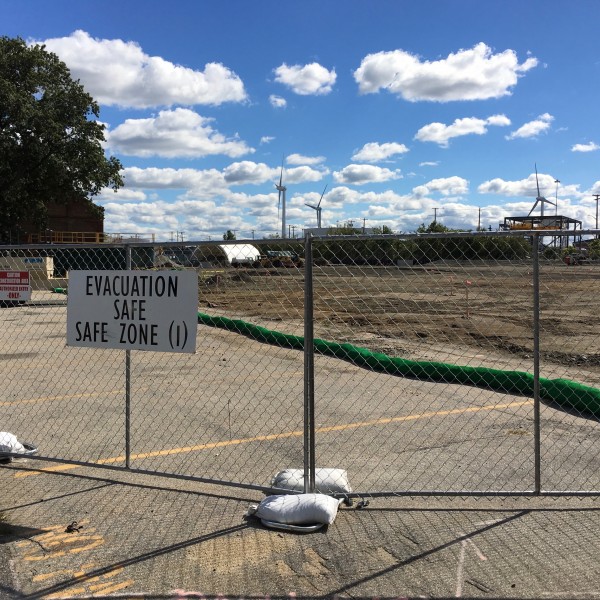 The project’s location, 642 Allens Ave, has a long history of industrial contamination dating back to the earliest days of the gas industry. Providence Gas Company operated a “manufactured gas plant” from 1910 to 1954 which resulted in the release of many toxic substances which polluted the soil and groundwater. The site has also been host to an ammonia plant, a toluene facility, a propane works, and most recently an LNG storage facility. Numerous substances which pose a risk to public health, safety, and the environment have been recorded at the site, including polycyclic aromatic hydrocarbons (PAHs), total petroleum hydrocarbons (TPH), phenolic compounds, volatile organic compounds (VOCs) including benzene and naphthalene, polychlorinated biphenyls (PCBs), ferri and ferro cyanide compounds, asbestos, and metals including lead and arsenic. Many locations in the site contain multiple hazardous substances at levels that far exceed allowed standards, and while some specific areas have been remediated since 1994, the majority of the land has not been remediated.
The project’s location, 642 Allens Ave, has a long history of industrial contamination dating back to the earliest days of the gas industry. Providence Gas Company operated a “manufactured gas plant” from 1910 to 1954 which resulted in the release of many toxic substances which polluted the soil and groundwater. The site has also been host to an ammonia plant, a toluene facility, a propane works, and most recently an LNG storage facility. Numerous substances which pose a risk to public health, safety, and the environment have been recorded at the site, including polycyclic aromatic hydrocarbons (PAHs), total petroleum hydrocarbons (TPH), phenolic compounds, volatile organic compounds (VOCs) including benzene and naphthalene, polychlorinated biphenyls (PCBs), ferri and ferro cyanide compounds, asbestos, and metals including lead and arsenic. Many locations in the site contain multiple hazardous substances at levels that far exceed allowed standards, and while some specific areas have been remediated since 1994, the majority of the land has not been remediated.
The petition submitted to to RIDEM articulated a number of community concerns about construction at the LNG site exposing workers or community members to toxins.
 “This is our community, people live here and kids go to school here, why does National Grid think it’s okay to put our lives and our health at risk? It’s our legal right to be involved in these decisions,” said Gina Rodríguez, a community resident and leader in the No LNG in PVD coalition. Monica Huertas, another coalition leader said, “It’s outrageous that there’s a known toxic site this close to my house, and we can go down Allens Ave and see clouds of dust blowing off from the piles that National Grid is digging up. The whole point of this Public Involvement Plan law is to address things like that, but National Grid is just ignoring our concerns and DEM isn’t doing anything to stop them.”
“This is our community, people live here and kids go to school here, why does National Grid think it’s okay to put our lives and our health at risk? It’s our legal right to be involved in these decisions,” said Gina Rodríguez, a community resident and leader in the No LNG in PVD coalition. Monica Huertas, another coalition leader said, “It’s outrageous that there’s a known toxic site this close to my house, and we can go down Allens Ave and see clouds of dust blowing off from the piles that National Grid is digging up. The whole point of this Public Involvement Plan law is to address things like that, but National Grid is just ignoring our concerns and DEM isn’t doing anything to stop them.”
A growing number of elected officials are working with the No LNG in PVD coalition and have declared opposition to National Grid’s unnecessary, expensive, and dangerous LNG proposal. The coalition denounces National Grid’s rush to begin work at the site before any public oversight is put in place. “This is exactly what RIDEM’s site remediation regulations are for,” said Representative Joseph Almeida. “In cases like this, where a project could release extremely dangerous contaminants, it is vital that the affected community have a role in overseeing remediation activities. Members of my district are already overburdened by environmental and health hazards. It is vital that DEM stop National Grid from kicking up a new load of previously buried poisons and toxics without giving this community any say.”
David Graves, spokesperson for National Grid, responded. “Construction work now underway on the property is not related to the liquefaction project. All of the work has been properly permitted. As part of our normal procedures, the earth excavated from the site is being covered.
“There are or will soon be two projects underway in the immediate area. One is construction of an access road to accommodate equipment that will come on site to make improvements to containment dyke wall that surrounds the LNG tank. The other is to cap approximately five acres of land at 642 Allens Ave that is part of a remediation project that was started several years ago. Both have been approved by DEM.”
No LNG in PVD coalition member Aaron Jaehnig responded to Graves’ statement. “The petition to DEM for a Public Involvement Plan related to that property clearly requested a halt to any construction or remediation projects until a Plan was in place. DEM’s request to National Grid, for that plan did not alter our request or sepcify that prior permits were exempt. The PIP process exists so the concerned residents, potentially effected by the disruption of toxic materials, are legally granted oversight to such projects. Its great that that National Grid believes they are above participation in this process, it just confirms our suspicions that their actions do not take the public’s well being into consideration. They have already shown a blatant disregard for the community by ignoring DEM’s request for response to the PIP order within seven days. All construction and remediation activity should be halted immediately until that process is completed.”
National Grid has responded a second time, denying some of the allegations made by the N o LNG in PVD coalition: “The work underway at our property at 642 Allens Ave. property, which has been properly permitted, is unrelated to the liquefaction project. One element of the work is environmental remediation. It is enhancing public safety not endangering it as claimed by one group. Also, at no time have we requested to FERC that they not hold public hearings and we responded to DEM on the matter of the Public Involvement Plan (which is unrelated to the current work on the property) within the required time. Every project we undertake is planned and executed under rigid safety and environmental standards and the work currently underway is no exception.”



 Even as the Burrillville Town Council approved a resolution to oppose the siting and construction of Invenergy’s $700 million fracked gas and diesel oil burning power plant in their town, the next battle, over a proposed
Even as the Burrillville Town Council approved a resolution to oppose the siting and construction of Invenergy’s $700 million fracked gas and diesel oil burning power plant in their town, the next battle, over a proposed 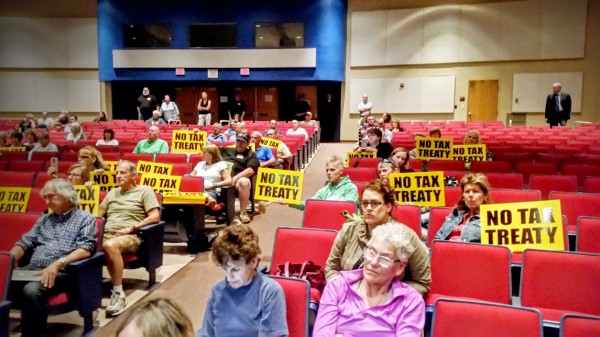
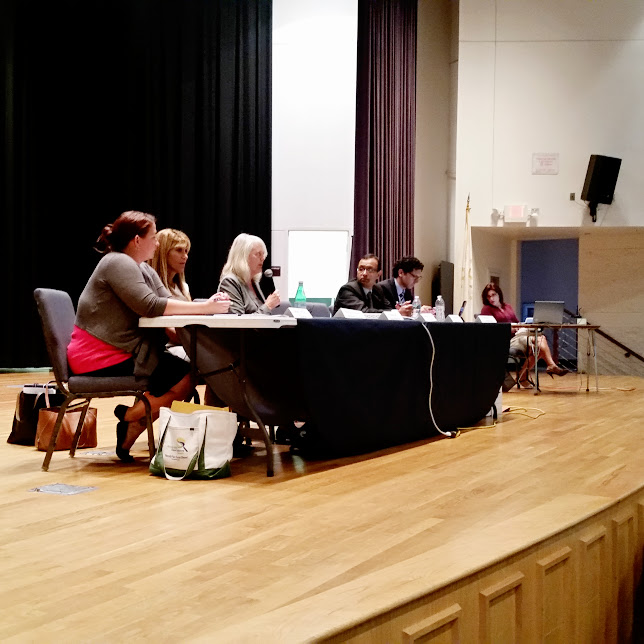
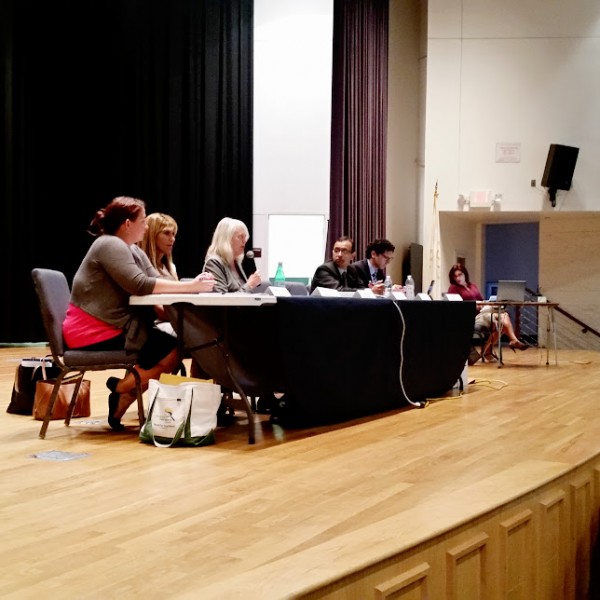 The Energy Facilities Siting Board (EFSB) public hearing in Warwick Wednesday evening, coming near the end of the process to decide the fate of Invenergy‘s proposed $700 million fracked gas and diesel oil burning power plant, was filled with almost philosophical reflection, with many speakers, who have sat through dozens of EFSB, town council, zoning and department meetings and honed their public speaking skills, commenting with a battle weary determination and steely resolve.
The Energy Facilities Siting Board (EFSB) public hearing in Warwick Wednesday evening, coming near the end of the process to decide the fate of Invenergy‘s proposed $700 million fracked gas and diesel oil burning power plant, was filled with almost philosophical reflection, with many speakers, who have sat through dozens of EFSB, town council, zoning and department meetings and honed their public speaking skills, commenting with a battle weary determination and steely resolve.


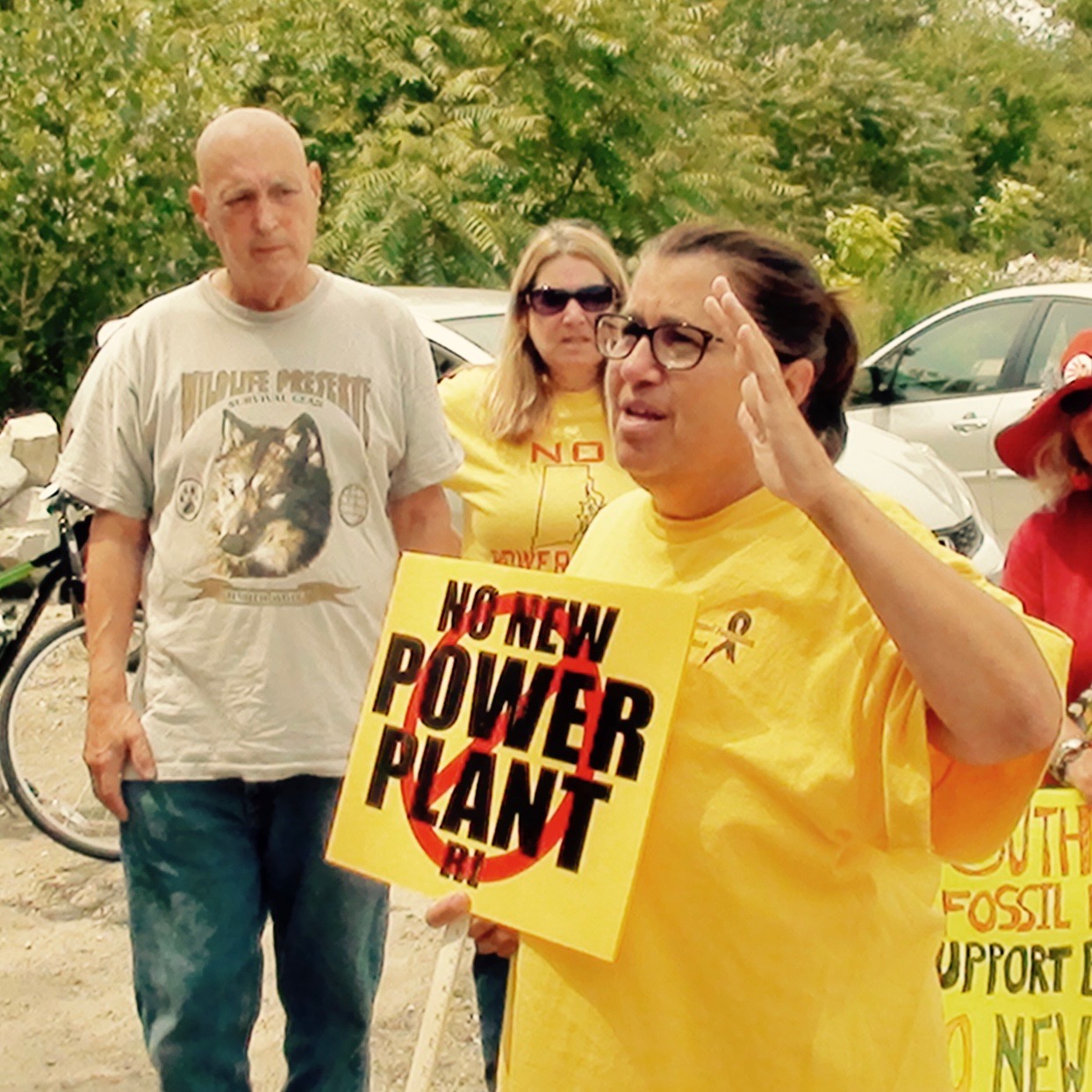
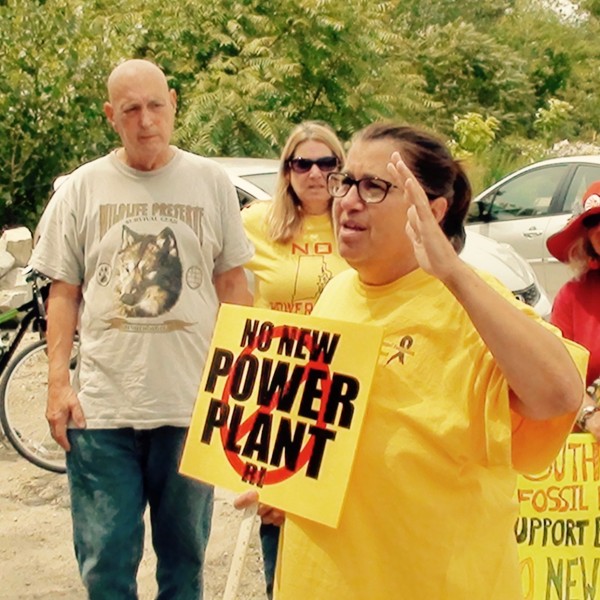 The Conservation Law Foundation‘s (CLF) senior attorney Jerry Elmer filed a
The Conservation Law Foundation‘s (CLF) senior attorney Jerry Elmer filed a 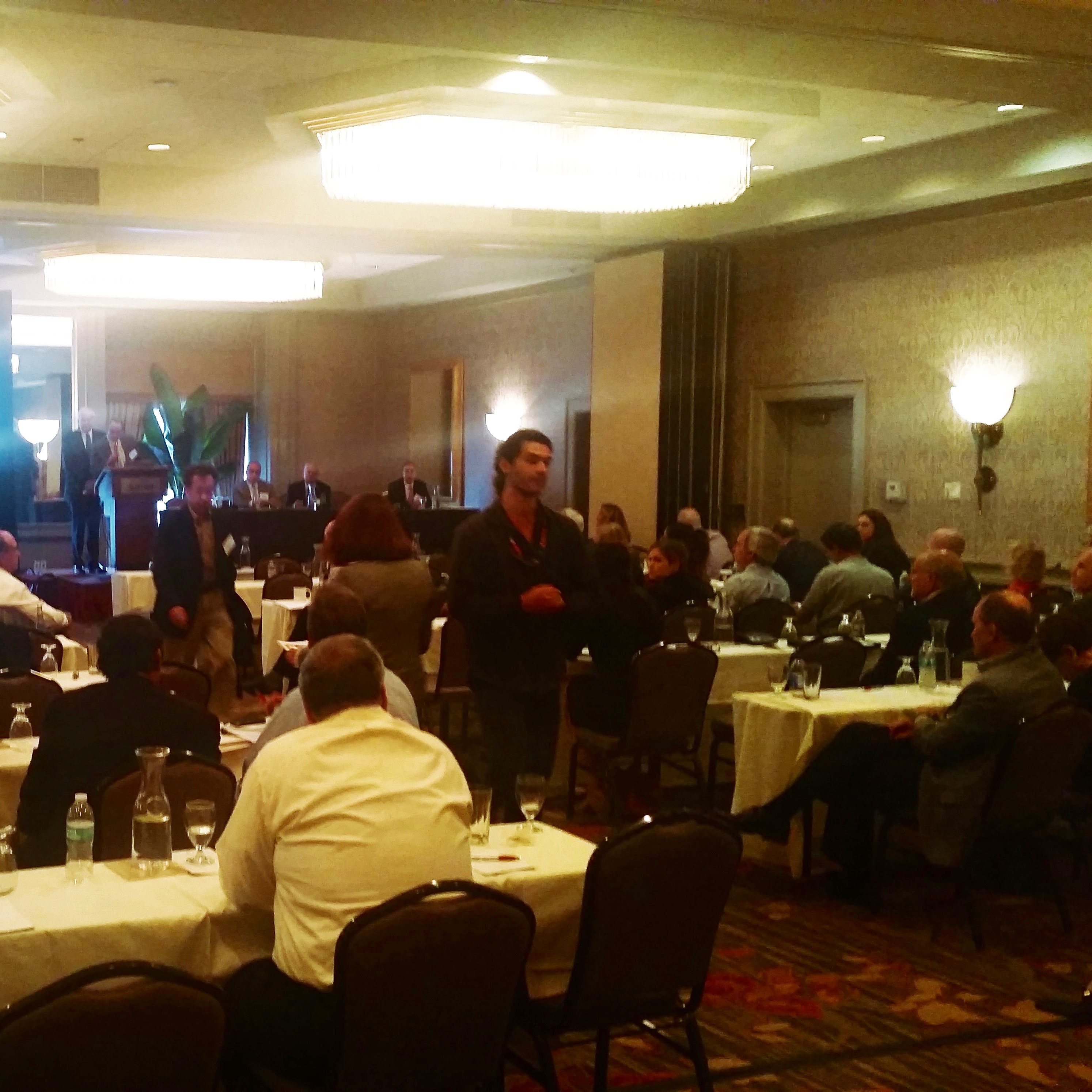
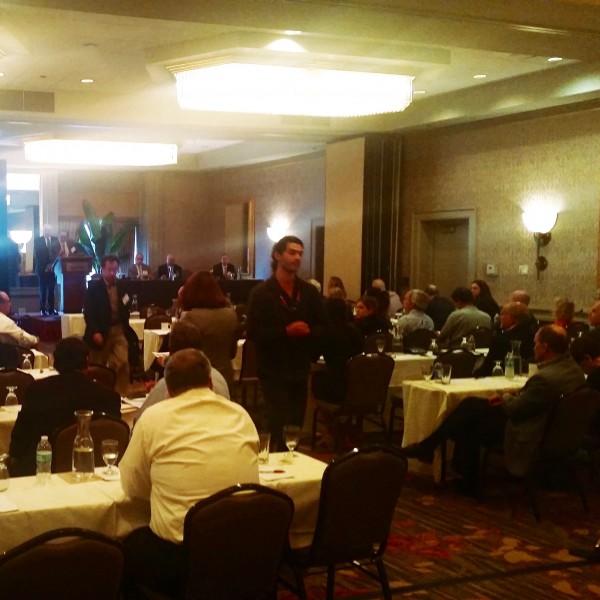 The Consumer Liaison Group (CLG) Meeting happens four times a year and its a chance for ISO-NE to exchange information with electricity consumers in New England. ISO-NE is the group that regulates our electricity markets and keeps the lights on by coordinating electricity generation and transmission. They run billion dollar markets and interact with companies like Spectra Energy, Invenergy, National Grid and Deepwater Wind. Pretty much every aspect of the process of getting electricity to your television is touched upon by ISO-NE in some way.
The Consumer Liaison Group (CLG) Meeting happens four times a year and its a chance for ISO-NE to exchange information with electricity consumers in New England. ISO-NE is the group that regulates our electricity markets and keeps the lights on by coordinating electricity generation and transmission. They run billion dollar markets and interact with companies like Spectra Energy, Invenergy, National Grid and Deepwater Wind. Pretty much every aspect of the process of getting electricity to your television is touched upon by ISO-NE in some way. The latest meeting of the CLG, in Providence on Thursday, featured a panel discussion with representatives from the four companies mentioned above. The panel was pulled together with the help of Douglas Gablinske, executive director of The Energy Council of Rhode Island (TEC-RI) an advocacy group for energy company concerns. Readers of RI Future may remember that Gablinske was a vocal
The latest meeting of the CLG, in Providence on Thursday, featured a panel discussion with representatives from the four companies mentioned above. The panel was pulled together with the help of Douglas Gablinske, executive director of The Energy Council of Rhode Island (TEC-RI) an advocacy group for energy company concerns. Readers of RI Future may remember that Gablinske was a vocal 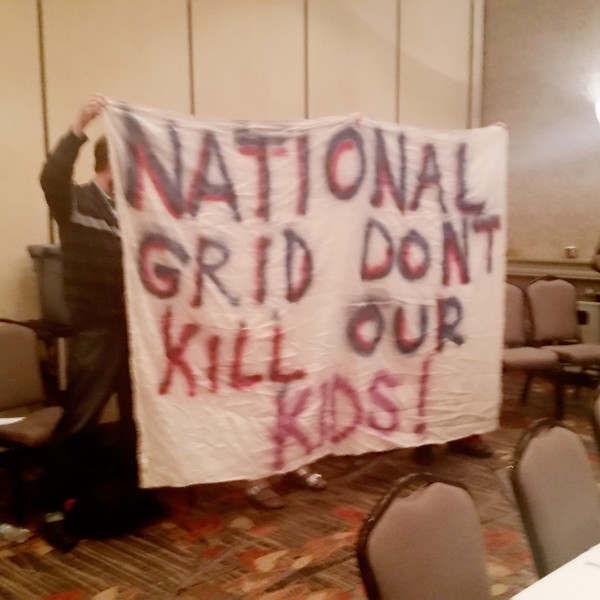



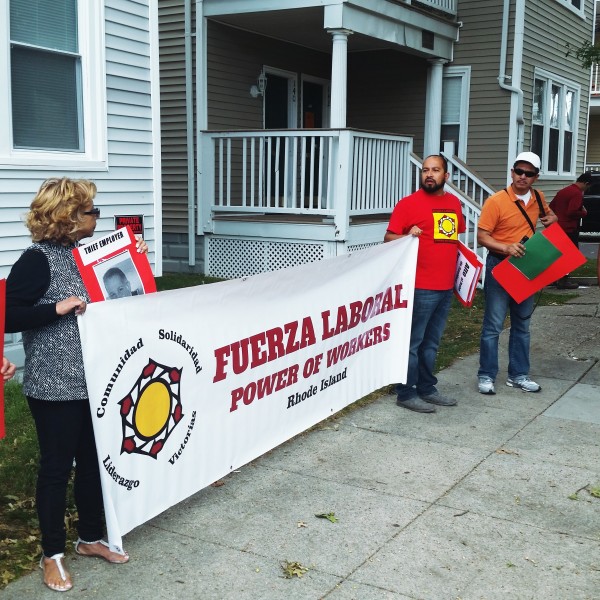 Fuerza maintains that on May 26-29, Civetti’s company “assigned a group of workers to clean apartments located in the area surrounding Providence College. The workers say that Civetti assigned workers to the houses that needed cleaning and supplied them with company tee shirts and cleaning supplies. After the job was completed, 8 workers were not compensated for those 4 days, 11 hours a day.” Civetti claimed that the people who cleaned his apartments were hired by subcontractors, and that the the subcontractors owe the money, not him.
Fuerza maintains that on May 26-29, Civetti’s company “assigned a group of workers to clean apartments located in the area surrounding Providence College. The workers say that Civetti assigned workers to the houses that needed cleaning and supplied them with company tee shirts and cleaning supplies. After the job was completed, 8 workers were not compensated for those 4 days, 11 hours a day.” Civetti claimed that the people who cleaned his apartments were hired by subcontractors, and that the the subcontractors owe the money, not him.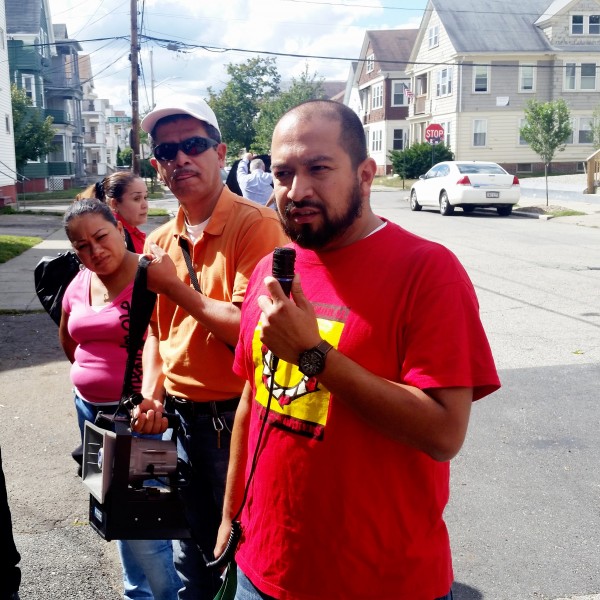 On Thursday about a dozen workers and activists showed up at Civetti’s offices near Providence College, and began leafleting houses and passing students. Organizer Raul Figueroa carried a megaphone and broadcast the workers’ complaints to the neighborhood. Once the workers arrived at Civetti’s offices, Fabian, one of the workers, called Civetti on the phone and asked him to come down and pay him the money he is owed. When Civetti would not commit to do so, the protest continued.
On Thursday about a dozen workers and activists showed up at Civetti’s offices near Providence College, and began leafleting houses and passing students. Organizer Raul Figueroa carried a megaphone and broadcast the workers’ complaints to the neighborhood. Once the workers arrived at Civetti’s offices, Fabian, one of the workers, called Civetti on the phone and asked him to come down and pay him the money he is owed. When Civetti would not commit to do so, the protest continued.
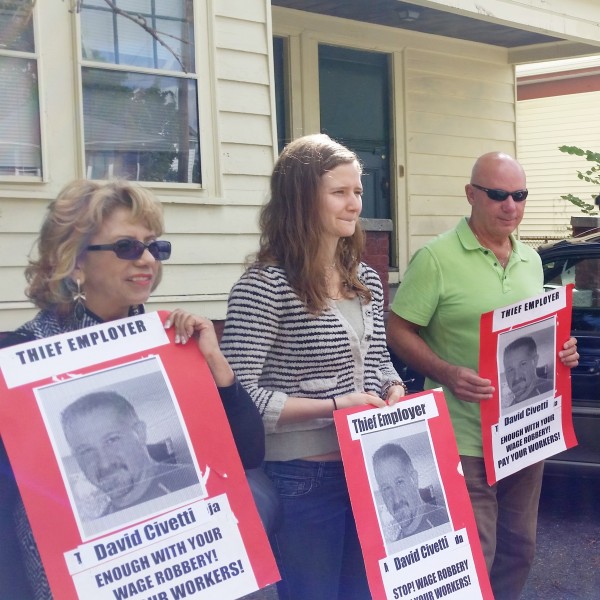
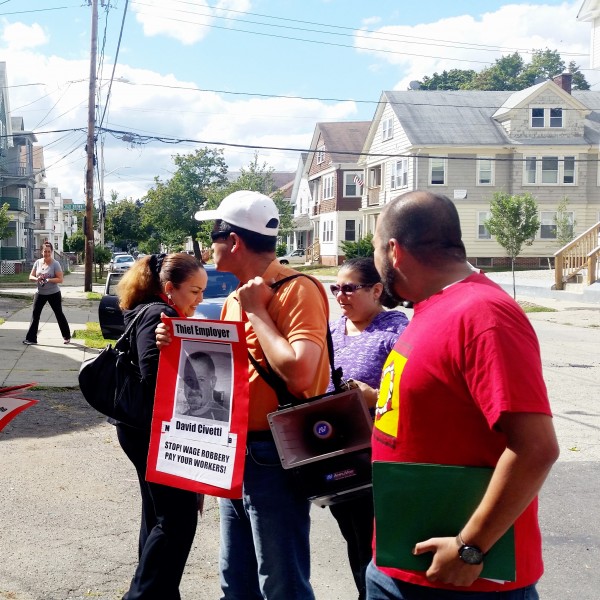


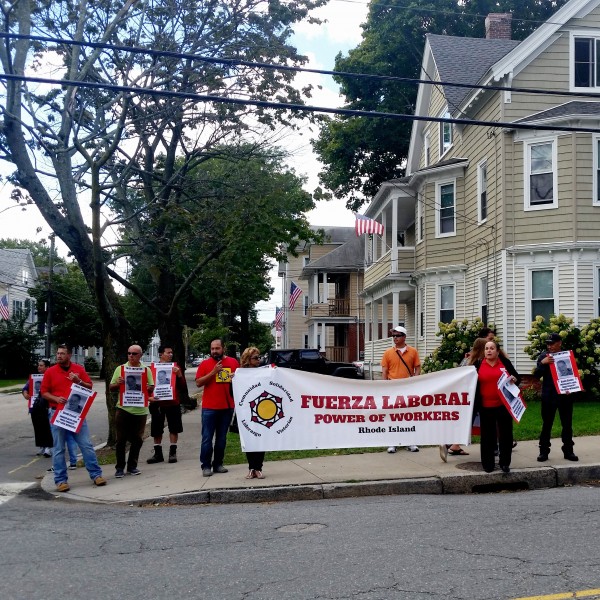

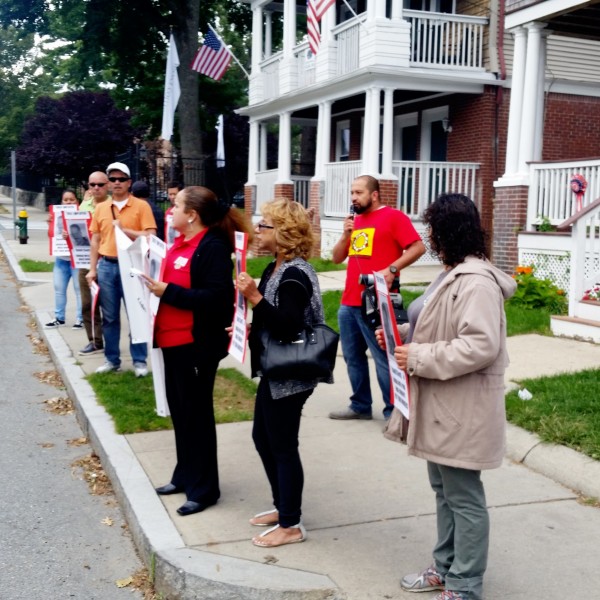

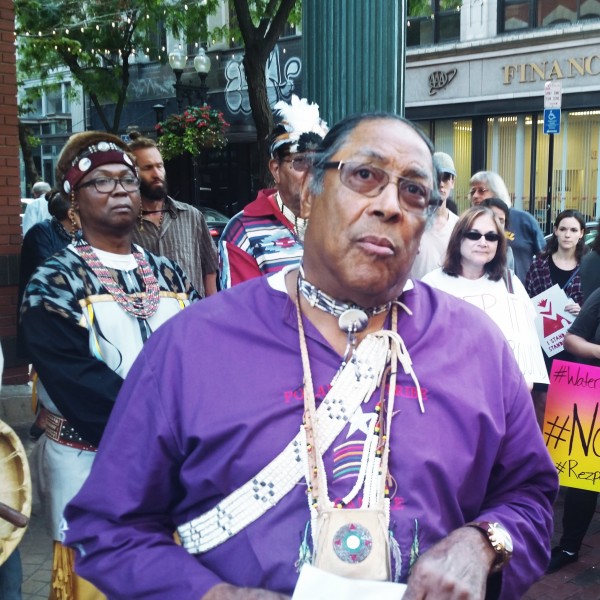 TD Bank in downtown Providence became the target of local environmental and indigenous American activists Thursday in response to calls for solidarity with the Standing Rock Sioux as they continue to battle the $3.78 billion Dakota Access Pipeline (DAPL). TD Bank is one of many financial institutions funding the pipeline. Similar actions have been
TD Bank in downtown Providence became the target of local environmental and indigenous American activists Thursday in response to calls for solidarity with the Standing Rock Sioux as they continue to battle the $3.78 billion Dakota Access Pipeline (DAPL). TD Bank is one of many financial institutions funding the pipeline. Similar actions have been  Organizers contend that construction of the DAPL “would engender a renewed fracking-frenzy in the Bakken shale region, as well as endanger a source of fresh water for the Standing Rock Sioux and 8 million people living downstream. DAPL would also impact many sites that are sacred to the Standing Rock Sioux and other indigenous nations.”
Organizers contend that construction of the DAPL “would engender a renewed fracking-frenzy in the Bakken shale region, as well as endanger a source of fresh water for the Standing Rock Sioux and 8 million people living downstream. DAPL would also impact many sites that are sacred to the Standing Rock Sioux and other indigenous nations.”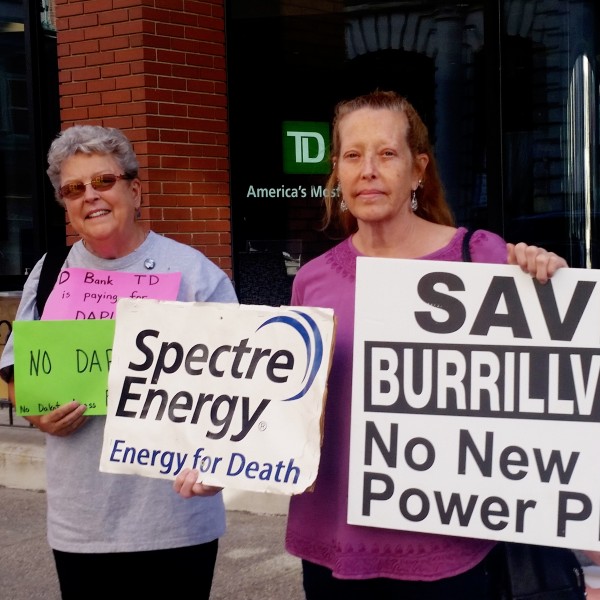

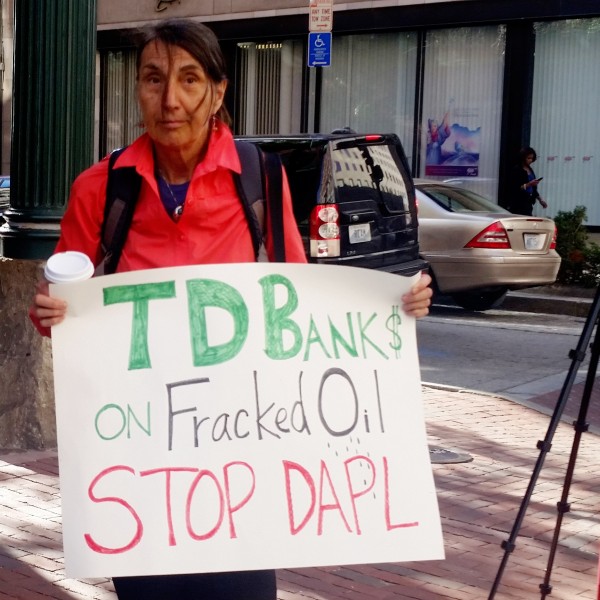




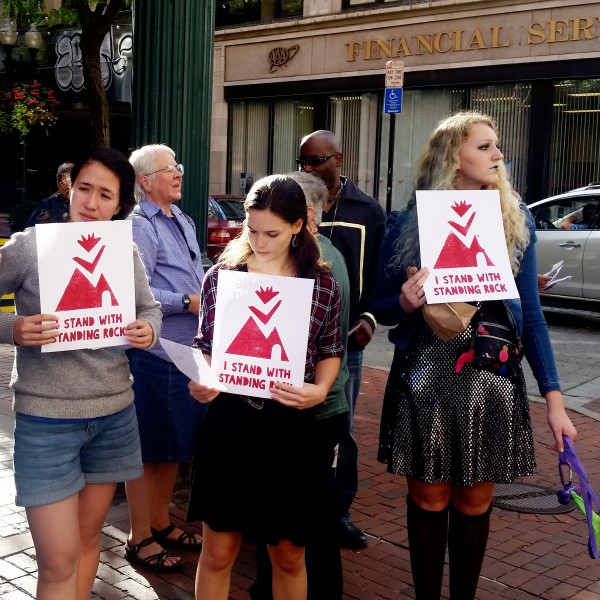
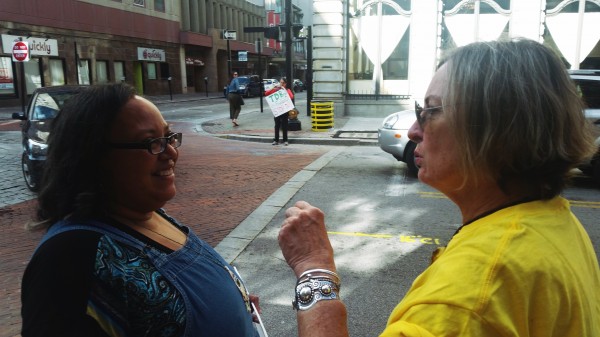


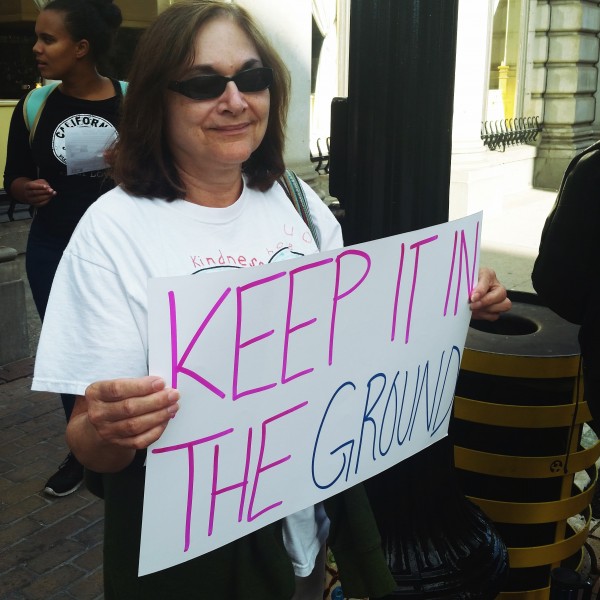
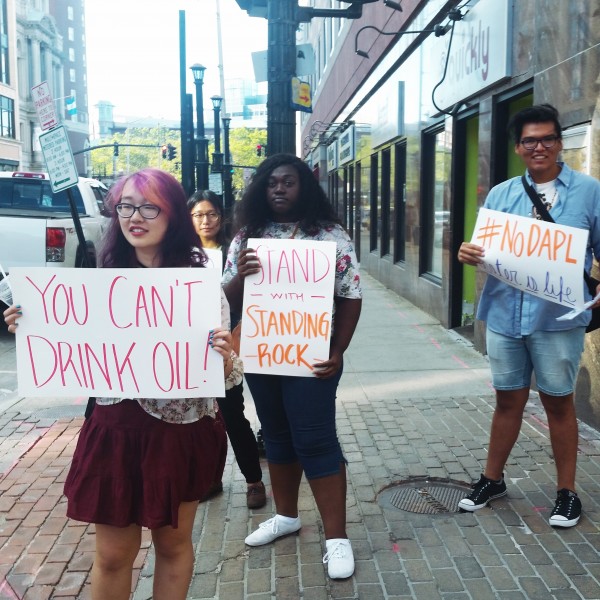




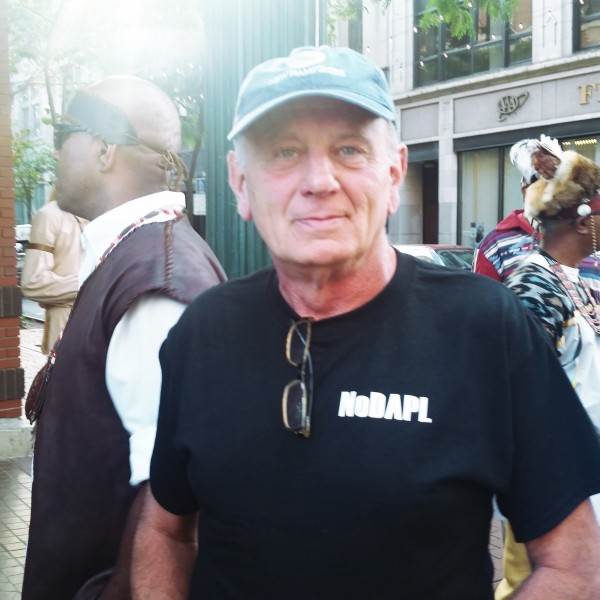

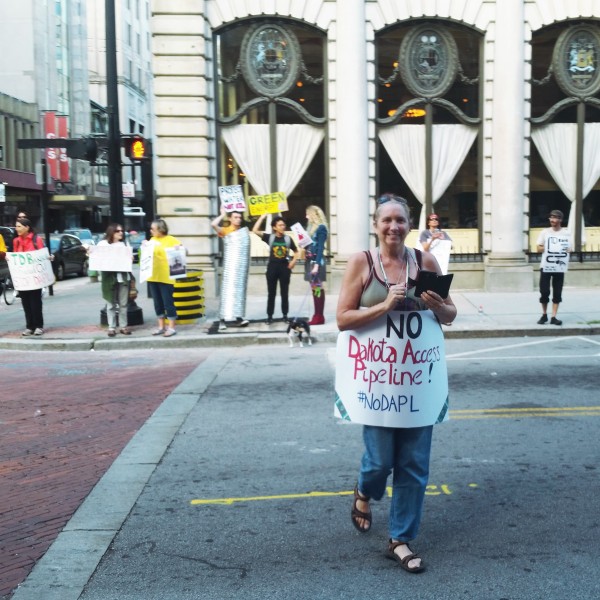
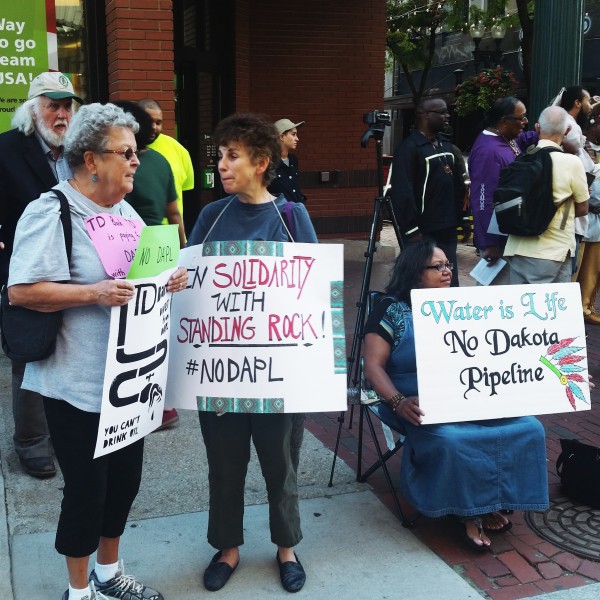
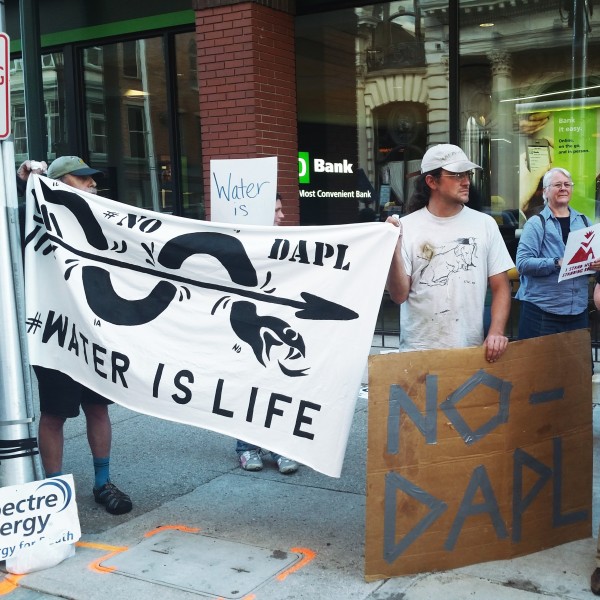

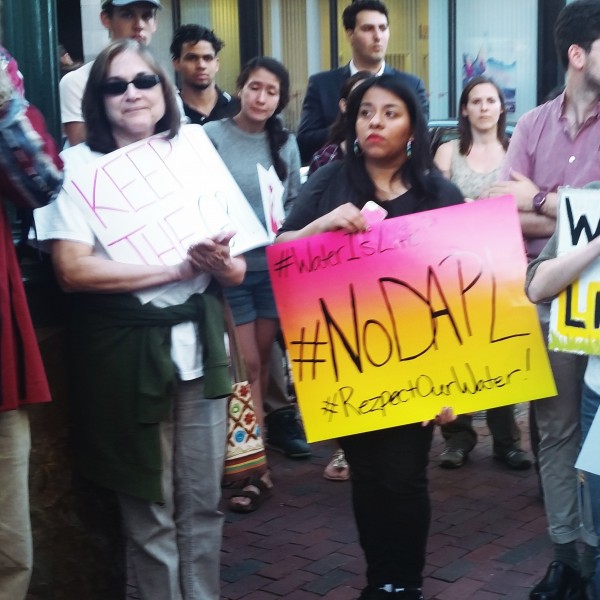
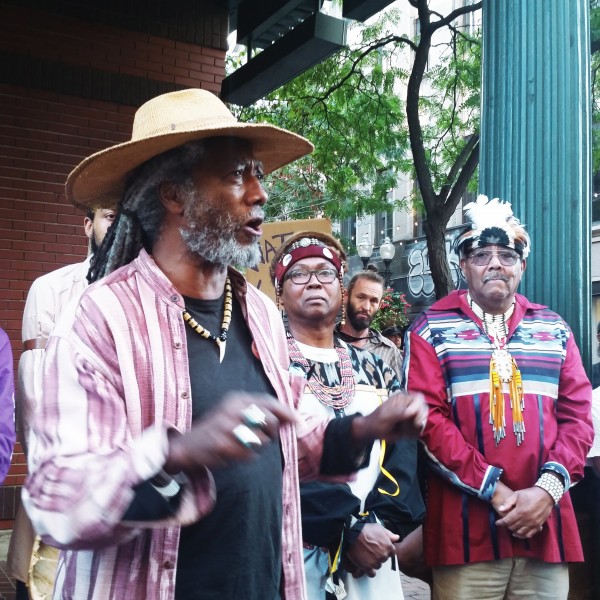
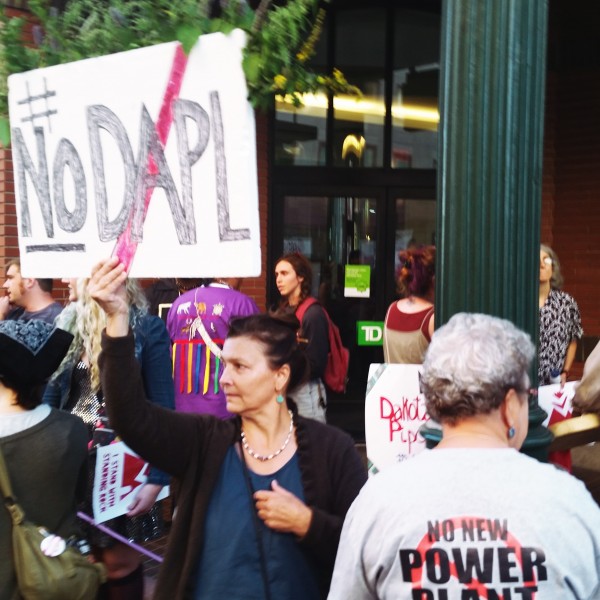




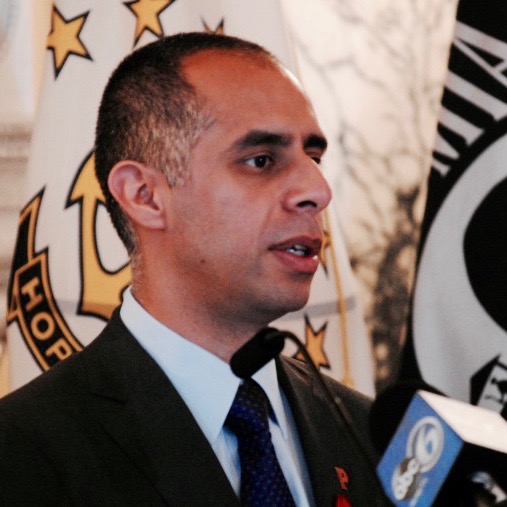
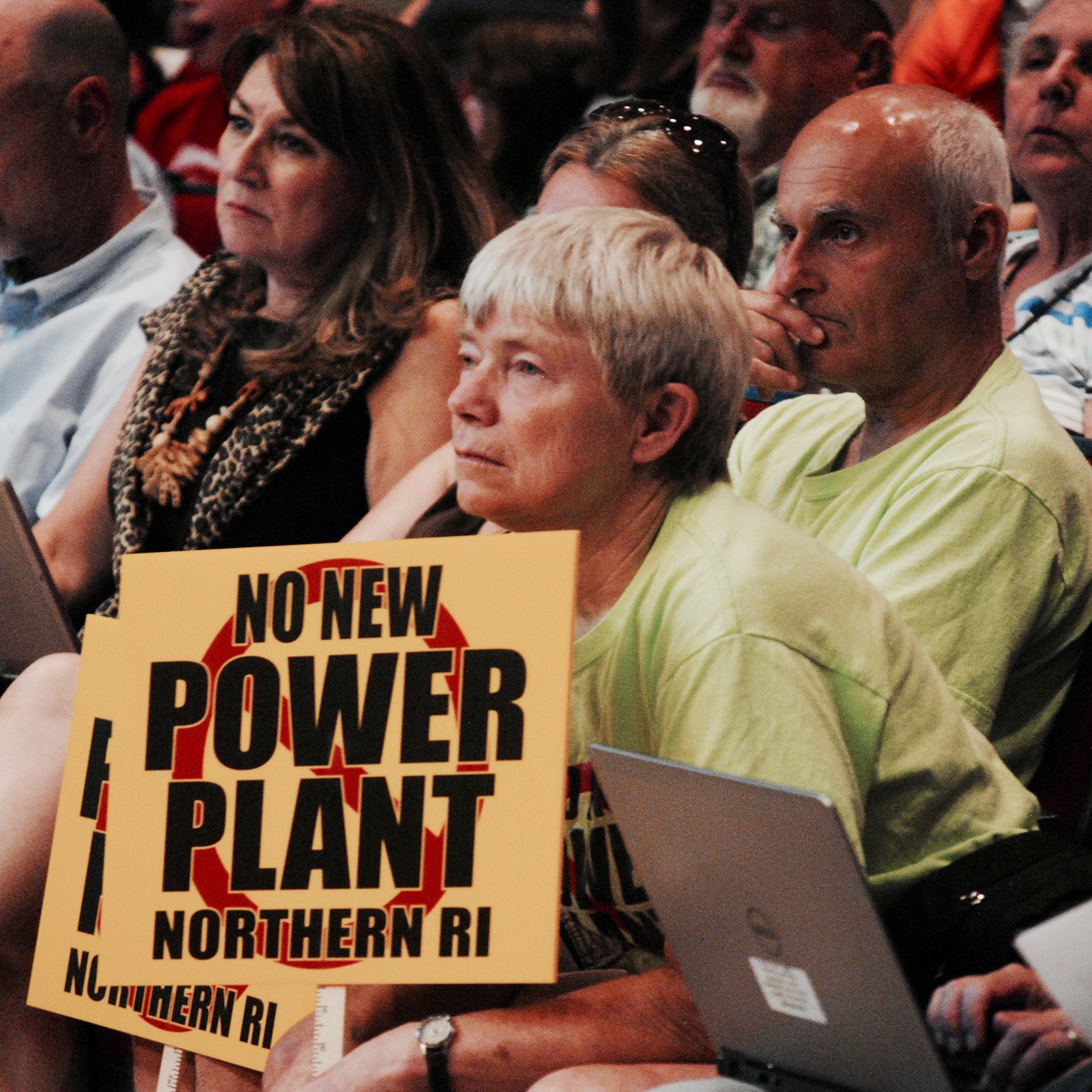
 Because Invenergy “has either refused or is unable to provide timely information regarding its proposed water supply… its Application should… be dismissed” writes Attorney Michael McElroy, representing the Town of Burrillville, in a
Because Invenergy “has either refused or is unable to provide timely information regarding its proposed water supply… its Application should… be dismissed” writes Attorney Michael McElroy, representing the Town of Burrillville, in a 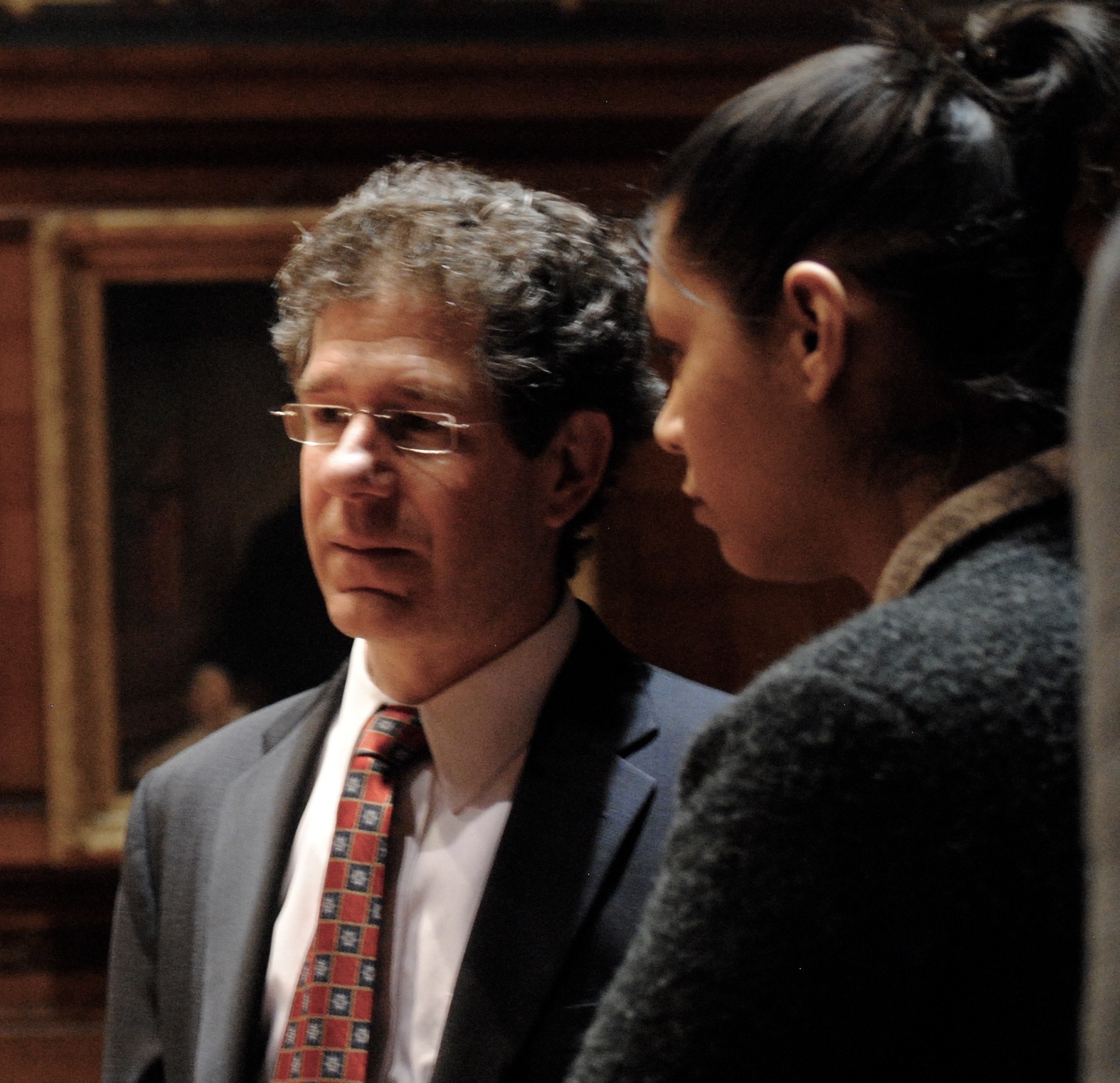
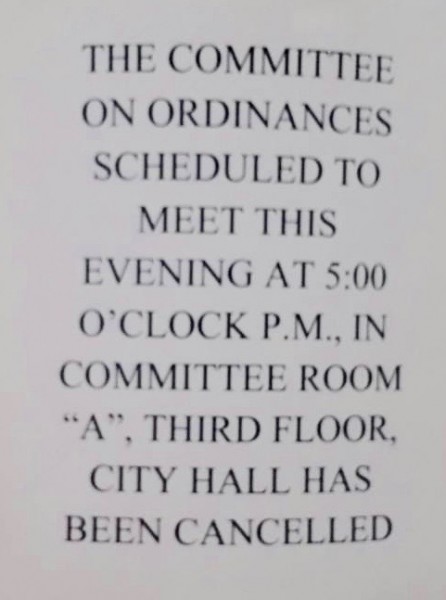 The Providence City Council Ordinance Committee meeting scheduled for 5pm on Monday was cancelled at 4:30pm, what one City Hall worker called, “at the last minute,” by Committee Chair Terrence Hassett. The cancellation effectively stalls the discussion of Councillor Seth Yurdin’s resolution opposing the construction of National Grid’s proposed liquefaction facility for Fields Point in the Port of Providence.
The Providence City Council Ordinance Committee meeting scheduled for 5pm on Monday was cancelled at 4:30pm, what one City Hall worker called, “at the last minute,” by Committee Chair Terrence Hassett. The cancellation effectively stalls the discussion of Councillor Seth Yurdin’s resolution opposing the construction of National Grid’s proposed liquefaction facility for Fields Point in the Port of Providence.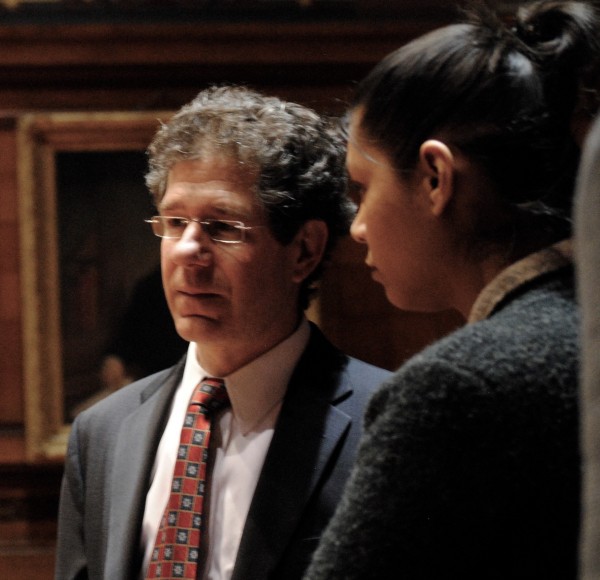 Councillor Seth Yurdin arrived ten minutes before the meeting was due to start. He had received a text ten minutes before arriving telling him the meeting was cancelled. He said he didn’t know why the meeting was cancelled. He had no more insight, it seems, than anyone else.
Councillor Seth Yurdin arrived ten minutes before the meeting was due to start. He had received a text ten minutes before arriving telling him the meeting was cancelled. He said he didn’t know why the meeting was cancelled. He had no more insight, it seems, than anyone else.
 Tonight at 5pm the Providence City Council Ordinance Committee will be considering Councilor Seth Yurdin‘s second, stronger resolution opposing National Grid‘s fracked gas LNG liquefaction facility for Fields Point in the Port of Providence.
Tonight at 5pm the Providence City Council Ordinance Committee will be considering Councilor Seth Yurdin‘s second, stronger resolution opposing National Grid‘s fracked gas LNG liquefaction facility for Fields Point in the Port of Providence.
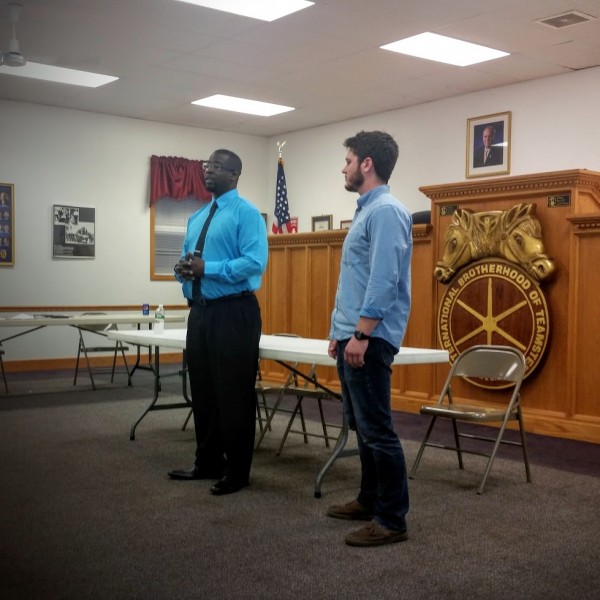




 A march from Kennedy Plaza to the Providence Public Safety Complex, with a brief, tense stop in front of the Providence Place Mall was held in Providence Friday evening in solidarity with a
A march from Kennedy Plaza to the Providence Public Safety Complex, with a brief, tense stop in front of the Providence Place Mall was held in Providence Friday evening in solidarity with a 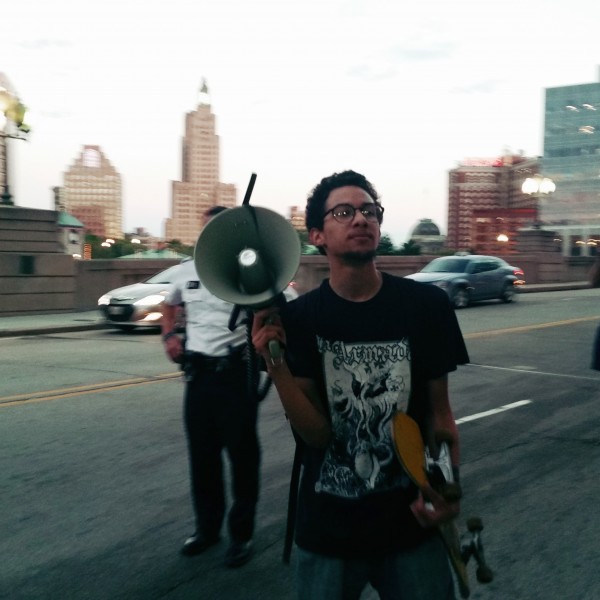 On my way back to Kennedy Plaza after the event Lt. Perez told me, half jokingly, that “those kids kind of hurt my feelings.”
On my way back to Kennedy Plaza after the event Lt. Perez told me, half jokingly, that “those kids kind of hurt my feelings.”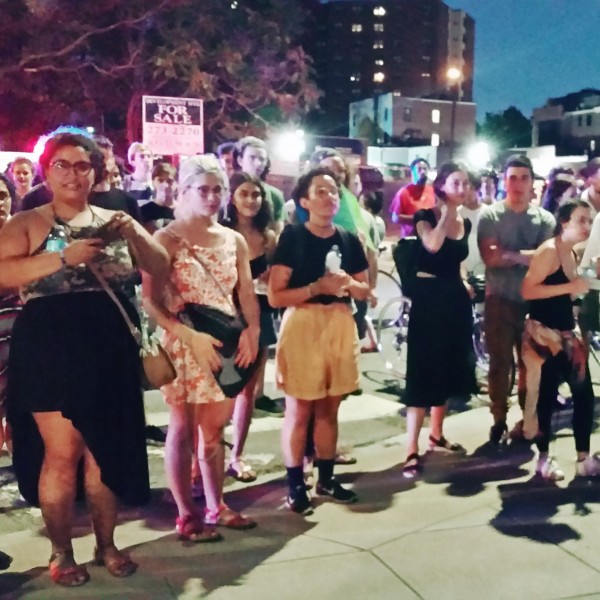
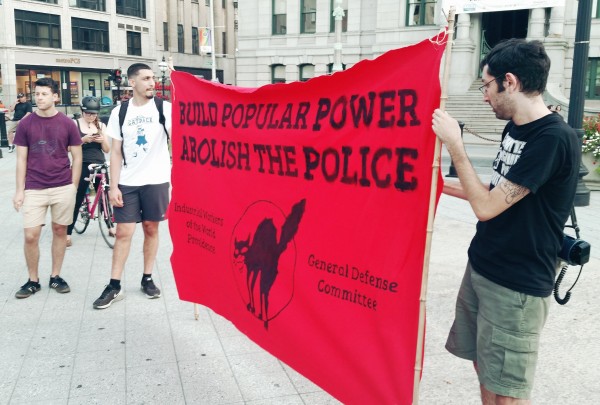

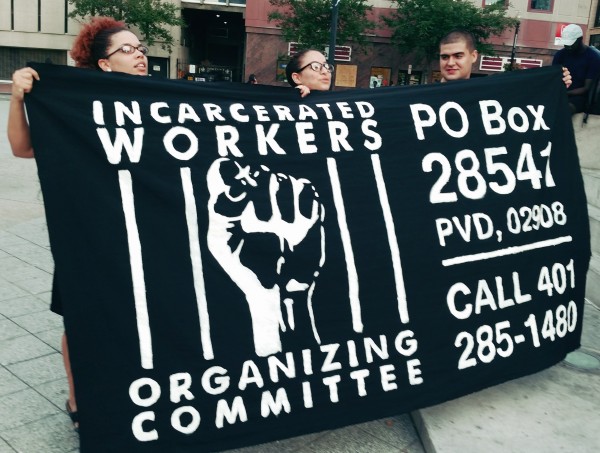
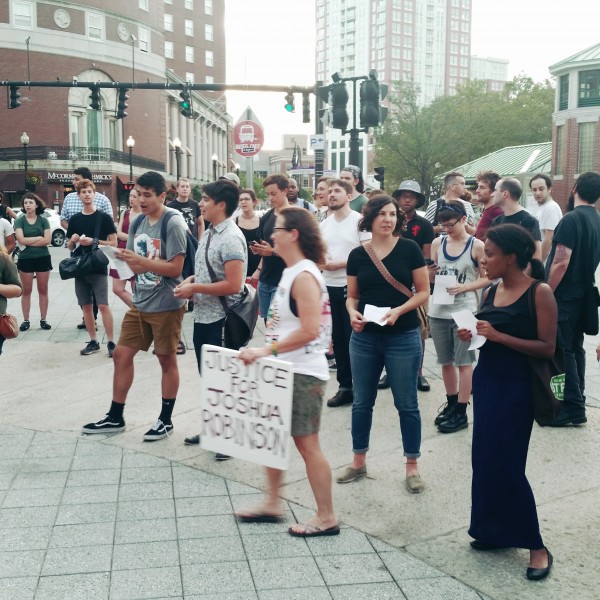
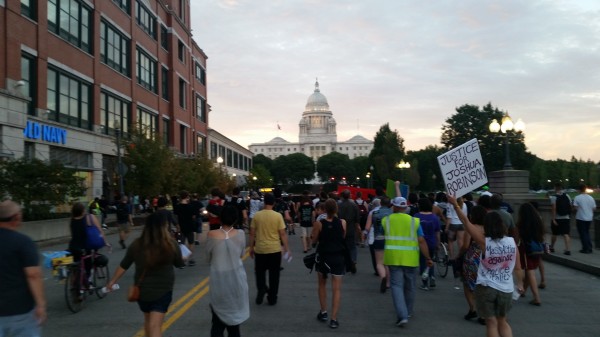


 Saying that fighting dark money in politics is his “patriotic duty,” Senator Sheldon Whitehouse sat next to Congressmembers David Cicilline and James Langevin in a “roundtable discussion” to highlight his work on the
Saying that fighting dark money in politics is his “patriotic duty,” Senator Sheldon Whitehouse sat next to Congressmembers David Cicilline and James Langevin in a “roundtable discussion” to highlight his work on the 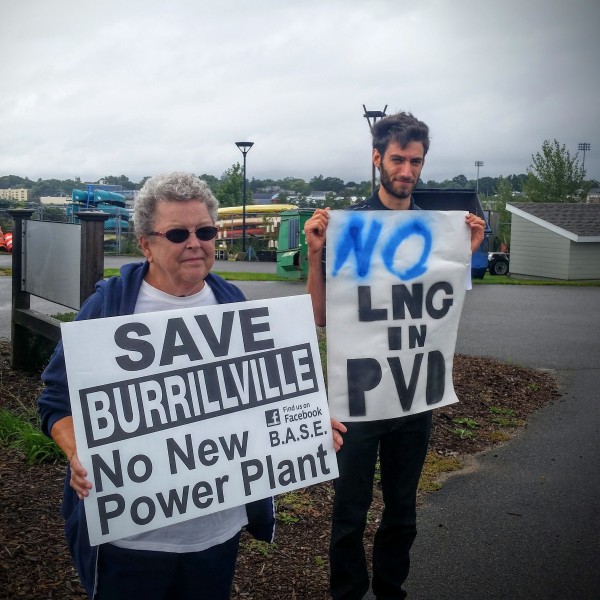 Notably, there were protesters outside Save the Bay holding signs reminding their elected representatives about both Invenergy’s proposed $700 million fracked gas and diesel oil burning power plant and National Grid’s proposed LNG liquefaction facility for Fields Point in the Port of Providence, a stone’s throw away. They were there to remind elected officials that their jobs in Washington do not absolve them from taking positions on local issues. None of the elected leaders in the room, aside from State Senator Juan Pichardo, who has publicly
Notably, there were protesters outside Save the Bay holding signs reminding their elected representatives about both Invenergy’s proposed $700 million fracked gas and diesel oil burning power plant and National Grid’s proposed LNG liquefaction facility for Fields Point in the Port of Providence, a stone’s throw away. They were there to remind elected officials that their jobs in Washington do not absolve them from taking positions on local issues. None of the elected leaders in the room, aside from State Senator Juan Pichardo, who has publicly  The influence of corporate spending on elections since the 2010 Citizens United decision by the Supreme Court is a major concern to all who attended the event. Citizens United unleashed a previously restricted torrent of special interest money into the political system. More than $1.5 billion in unlimited contributions, including more than $500 million in secret contributions, have been poured into federal elections since the decision was issued.
The influence of corporate spending on elections since the 2010 Citizens United decision by the Supreme Court is a major concern to all who attended the event. Citizens United unleashed a previously restricted torrent of special interest money into the political system. More than $1.5 billion in unlimited contributions, including more than $500 million in secret contributions, have been poured into federal elections since the decision was issued.
